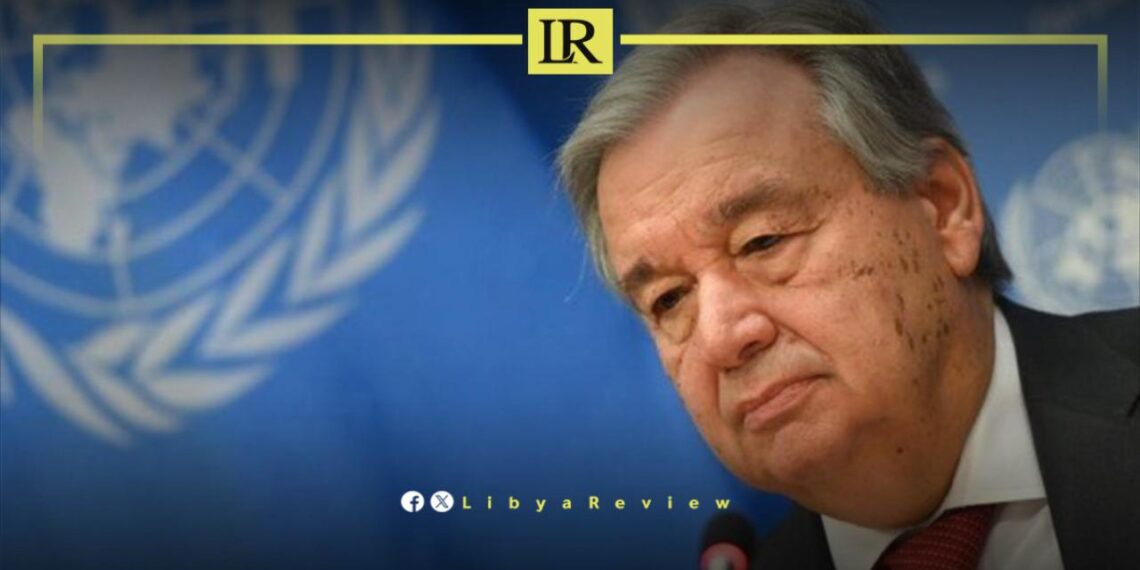In his latest report to the UN Security Council, Secretary-General António Guterres highlighted several critical concerns regarding the situation in Libya over the past four months.
Guterres warned that unilateral actions and the ongoing political stalemate have further eroded trust between Libyan parties, leading to more entrenched positions.
The UN Secretary-General expressed deep concern over the political deadlock and the existence of parallel governance structures, which are driving the country towards greater political fragmentation.
He urged regional and international partners to refrain from engaging in uncoordinated and unilateral initiatives, warning that such actions could exacerbate the situation.
Guterres also noted the growing risk of Libya becoming a battleground for regional and international competition, which threatens the country’s sovereignty and stability, and poses a significant obstacle to the efforts of the UN mission.
He stressed the importance of continued support for the Acting Special Representative of the Secretary-General, Stephanie Khoury, in her efforts to reinvigorate the political process and conduct inclusive consultations.
Guterres emphasized that these efforts are crucial for achieving a sustainable resolution to the Libyan crisis.
Notably, the Speaker of the Libyan House of Representatives (HoR), Ageela Saleh, condemned the Government of National Unity’s (GNU) decision to expel Egyptian intelligence officials stationed at the Egyptian Embassy in Tripoli. Saleh labeled the move as reckless and unrepresentative of the Libyan people’s true sentiments.
Saleh, a key figure in Libya’s eastern administration, criticized the GNU—headed by Prime Minister Abdul Hamid Dbaiba—as an “expired government” whose actions jeopardize the longstanding and close relations between Libya and Egypt. He stressed that these historical ties should not be undermined by temporary political disputes.
The expulsion order underscores the deepening rift between Libya’s rival governments. The HoR, based in Tobruk, has established a parallel government in the east, with Osama Hammad as its Prime Minister.
Hammad’s recent visit to Cairo, where he was officially received by Egyptian Prime Minister Mostafa Madbouly, further fueled tensions. The discussions in Cairo, which included talks on involving Egyptian companies in Libya’s reconstruction, angered the GNU and led to the current diplomatic clash.
In a strong response, the GNU’s Ministry of Foreign Affairs condemned Egypt’s official reception of Hammad, describing it as a breach of the international consensus aimed at preventing Libya’s return to conflict and division. The GNU emphasized its commitment to balanced international relations, particularly with Egypt, to avoid deepening the country’s internal divisions.


